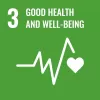The aim was to promote the importance of sleep and tips to improve it, thus also promoting the partnership with psychologist Aurora Belfanti, which provides psychological help with a special discount for Erasmus students. The aim of this partnership is to also provide psychological help to Erasmus students.
On our stories we posted an infographics about sleep, provided by the psychologist.
"Who hasn't had a bad period and not been able to sleep? The reasons can be different and there is certainly no one-size-fits-all remedy. Talking about your sleep problems and working on them with a specialist is an important step in improving your quality of life. But let's look together at some basic techniques that can help you improve the quality of your sleep!
First of all, it is important to know that we do not all have the same needs: several studies show that the 'ideal' amount of sleep varies between 4 and 11 hours per night.
Having a correct routine and good habits facilitates sleep regularisation. Here are some tips to follow:
- LIMIT USE OF CAFFEINE AND ALCHOL BEFORE GOING TO BED. In the 4-6 hours before bedtime, try to avoid coffee, tea, energy drinks and alchol.
- FIND A ROUTINE. Try to wake up at the same time every day but do not force yourself to go to bed at the same time: we cannot force ourselves to sleep. Only go to bed when you are tired. It is important that your brain does not associate the state of being awake and worry with your bed, so only go to bed when you feel the need.
- TRY TO DO SOMETHING ACTIVE DURING THE DAY (SPORT) (but try to avoid it before going to bed).
- GET SOME REST BEFORE GOING TO BED. Try to rest at least an hour before going to bed, create a 'ritual' (e.g. read a book on the couch before going to sleep)
- WHAT DO I DO IF I DON'T FALL ASLEEP? Don't toss and turn in bed and don't look at the clock: this will increase your agitation. Get up and try to do something else (e.g. sit on the sofa and read). Do not use your bed to watch TV, PC, study, work... Try not to take sleeping medication Make sure you feel comfortable in your room (light, ventilation...)
- REFLECTION: It is certainly not easy to improve our sleep when we are going through a difficult or particularly stressful period. We often do not stop to reflect on some of our habits and how we can change them, or we often get stuck in the same thoughts that keep us awake. Try writing down some of your habits and thoughts."
Then we provided info about the partnership.
We keep the stories related to this in a IG story highlight folder: https://www.instagram.com/stories/highlights/17860807362012157/

